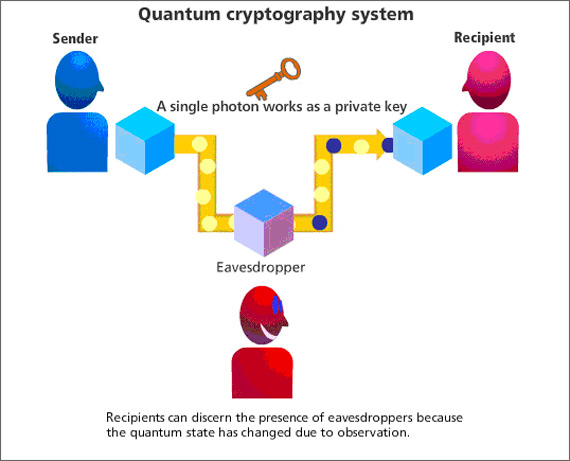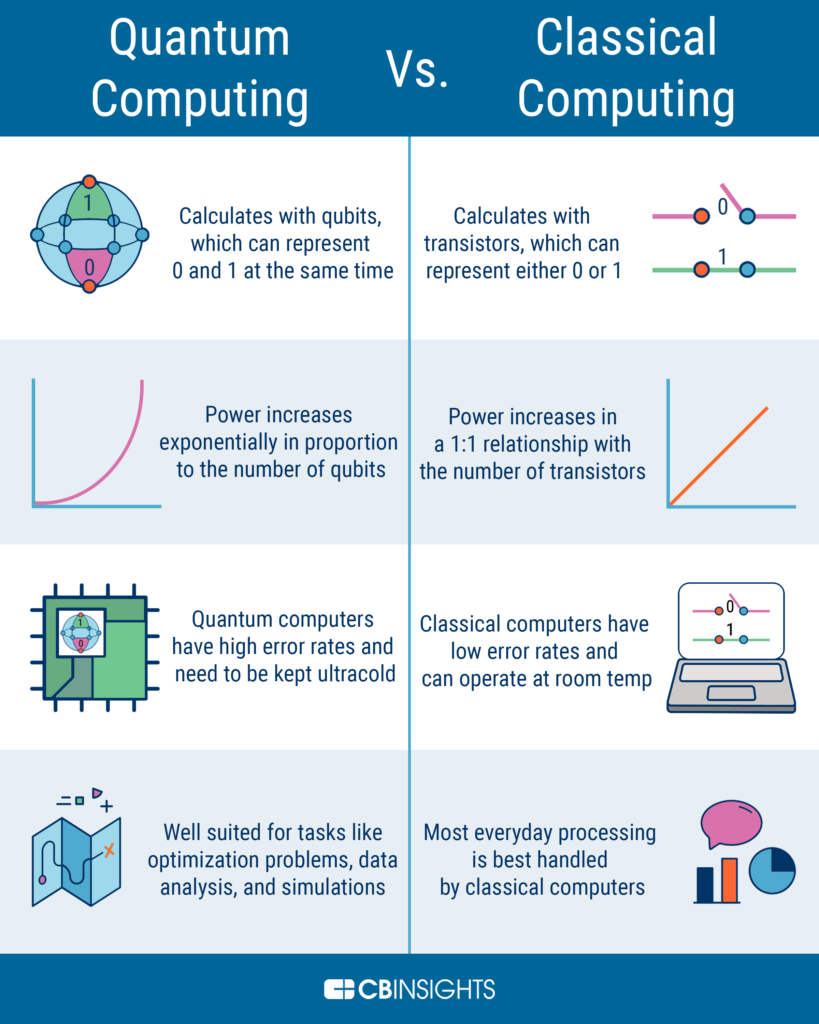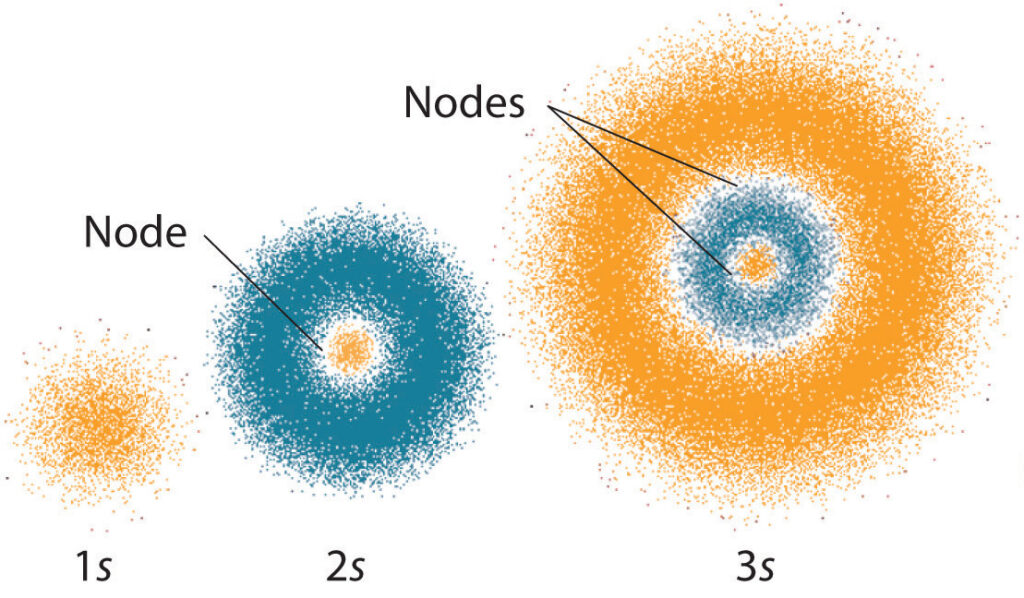Quantum computing is a relatively new and rapidly evolving field that has the potential to revolutionize the way we solve complex computational problems. One of the key concepts that sets quantum computing apart from classical computing is the phenomenon of entanglement. Entanglement is a quantum mechanical property that causes two or more particles to become correlated in such a way that their behavior is no longer independent of each other.
For quantum programmers, entanglement is an essential tool for designing and implementing quantum algorithms. By exploiting the unique properties of entangled particles, quantum programmers can create algorithms that are faster and more efficient than their classical counterparts. In this article, we will explore how quantum programmers use entanglement in algorithms and how this revolutionary technology is changing the face of computing as we know it.
Quantum programmers use entanglement in algorithms to create a link between two qubits, which enables them to transfer information from one qubit to another. Entanglement is a quantum phenomenon that allows qubits to interact instantly, even if they are separated by a large distance. This is unlike classical computing, where information must be transferred through physical wires. By using entanglement, quantum algorithms can analyze and process data faster, allowing for more complex calculations.

What is Quantum Programming?
Quantum programming is a new field of computing that uses the principles of quantum mechanics to enable new forms of computing. Unlike traditional computers, which use binary data and operate on a single bit of information at a time, quantum computers utilize qubits, which can represent multiple states at once. This allows them to store and process information much more efficiently. Quantum programming is used to develop algorithms and software that can take advantage of these unique capabilities.
How Do Quantum Programmers Use Entanglement in Algorithms?
Entanglement is an important concept in quantum computing, where two particles can become “entangled” such that a change in the state of one particle is immediately reflected in the other. This phenomenon can be used to create algorithms that are more efficient than traditional algorithms. Quantum programmers use entanglement to create algorithms that can solve complex problems more quickly, and with greater accuracy.
Quantum Search Algorithms
One way quantum programmers use entanglement is in quantum search algorithms. These algorithms leverage the principles of entanglement to search large datasets quickly and accurately. For example, a quantum search algorithm can take a large database of objects and quickly find the ones that match a given set of criteria. This type of algorithm can be used to find a needle in a haystack, or to quickly sort through large datasets for specific information.
Error Correction
Entanglement can also be used to create algorithms that are more resilient to errors. Errors often occur when data is stored or transmitted, and traditional algorithms can be easily derailed by these errors. By using entanglement, quantum programmers can develop algorithms that are more robust and less likely to be affected by errors. This can be especially useful when dealing with large datasets or complex calculations, as errors can easily cause the entire process to fail.
Quantum Cryptography
Another application of entanglement in quantum programming is quantum cryptography. This is a form of cryptography that relies on the principles of entanglement to create secure encryption keys. By using entangled particles, quantum programmers can create encryption keys that are virtually impossible to crack. This can be used to protect sensitive data, such as financial information or medical records.
Quantum Simulations
Finally, entanglement can be used to create quantum simulations. These simulations use the principles of quantum mechanics to simulate complex phenomena, such as chemical reactions or biological systems. By taking advantage of entanglement, quantum programmers can create simulations that can accurately predict real-world phenomena with greater accuracy than traditional models. This can be useful for a variety of applications, such as predicting the effects of a drug or simulating the behavior of a quantum system.
Frequently Asked Questions about Entanglement in Quantum Programming Algorithms
Quantum computing is a relatively new field of technology that involves the use of quantum mechanics to solve complex problems. Entanglement is a quantum phenomenon that has been used in various algorithms to enable faster and more efficient computing. In this article, we will answer some common questions about how entanglement is used in quantum programming algorithms.
What is Entanglement?
Entanglement is a quantum phenomenon in which two particles are connected in such a way that they share information, regardless of the distance between them. This means that when one particle is affected, the other is also affected, regardless of how far away they are from each other. This phenomenon has been used to create faster and more efficient algorithms in quantum computing.
How is Entanglement Used in Quantum Programming Algorithms?
Entanglement is used in quantum programming algorithms to enable faster and more efficient computing. By using entanglement, it is possible to process data in a more efficient manner. This is because the entangled particles can share information and process data faster than traditional computing methods. This can lead to faster and more accurate computations and algorithms.
What are the Benefits of Using Entanglement in Quantum Programming Algorithms?
The main benefit of using entanglement in quantum programming algorithms is the speed and accuracy of the computations. By using entanglement, computations can be done in a fraction of the time that it would take to do them using traditional methods. This can lead to faster and more efficient algorithms and programs. Additionally, entanglement can also help to improve accuracy, as the particles can share information more accurately.
Are there any Drawbacks to Using Entanglement in Quantum Programming Algorithms?
One of the drawbacks to using entanglement in quantum programming algorithms is that it is still a relatively new technology. As such, there are still some issues that need to be worked out in order for the technology to be used effectively. Additionally, entanglement requires a lot of energy to be used, which can be costly and inefficient.
What is the Future of Entanglement in Quantum Programming Algorithms?
The future of entanglement in quantum programming algorithms looks very promising. As the technology matures, it is likely that entanglement will become even more widespread and efficient. Additionally, researchers are continually working to improve the speed and accuracy of entanglement-based algorithms and programs. As such, it is likely that entanglement will become an even more powerful tool for quantum programming in the future.

In conclusion, quantum programming is a fascinating field that is still in its early stages, but it holds immense potential for revolutionizing various industries. The utilization of entanglement in algorithms has opened up new possibilities for quantum programmers to create highly efficient and complex systems that were previously unimaginable. Moreover, the significance of entanglement in quantum computing has been proved by numerous experiments, and it is likely to play a crucial role in the development of future quantum technologies.
As quantum computing continues to evolve, it is exciting to think about the endless possibilities that lie ahead. With entanglement as one of the fundamental building blocks of quantum computing, we can expect to see more innovative and powerful algorithms that will reshape the way we approach complex problems. The future of quantum programming is bright, and it will be interesting to see how it will transform various industries, from healthcare to finance and beyond.



